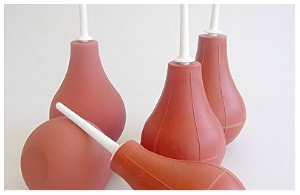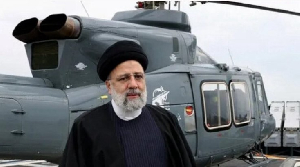- Home - News
- TWI News | TV
- Polls
- Year In Review
- News Archive
- Crime & Punishment
- Politics
- Regional
- Editorial
- Health
- Ghanaians Abroad
- Tabloid
- Africa
- Religion
- Election 2020
- Coronavirus
- News Videos | TV
- Photo Archives
- News Headlines
- Press Release
Press Releases of Tuesday, 5 March 2024
Source: National Commission on Small Arms and Light Weapons
Disarmament Day: Small Arms Commission's efforts to strengthen border security against illicit arms trade
"Disarmament and Non-proliferation are investments in peace. They are investments in our future. Let’s end these threats before they end us," - António Guterres- UN Secretary-General
The challenge of armed violence and the illicit arms trade is a multifaceted issue that not only threatens the fabric of societies but also undermines global efforts towards sustainable development and peace.
The United Nations Office of Disarmament Affairs (UNODA) underscores the devastating impact of armed violence on human well-being, spotlighting the urgent need for concerted disarmament and non-proliferation efforts worldwide.
In this light, Ghana's struggle against the influx of illicit arms across its borders reflects a broader global battle against forces that fuel insecurity, conflict, and human suffering.
The International Day for Disarmament and Non-Proliferation Awareness (IDDNPA) serves as a vital reminder of the collective responsibility to pursue a more peaceful world, free from the scourge of armed violence.
This day emphasizes the importance of global cooperation and understanding in tackling the complex issues surrounding disarmament and arms control. It reinforces the message that peace and security are prerequisites for sustainable development, echoing the principles enshrined in Sustainable Development Goal 16 (SDG 16).
This goal advocates for peace, justice, and strong institutions, highlighting the critical role of disarmament and arms regulation in achieving these objectives.
The illicit trade in Small Arms and Light Weapons (SALW) presents one of the most pressing security challenges of our time. These weapons are easily trafficked and widely available, exacerbate conflicts, empower criminal networks, and facilitate terrorism.
Ghana's proactive approach to establishing border offices, in collaboration with the United Nations Development Programme (UNDP) and with support from the German Federal Foreign Office (GFFO), represents a strategic response to this challenge. By strengthening border controls and enhancing surveillance, Ghana aims to stem the flow of illicit arms and mitigate their destabilizing effects on society.
The effectiveness of such measures is evident in the tangible outcomes observed at various border checkpoints. For instance, the use of metal detectors at the Elubo Border and the intelligence-led operations at the Paga cross-border office illustrate Ghana's commitment to innovative and collaborative approaches in combating arms trafficking. These efforts not only prevent the entry of illicit arms but also contribute to a broader regional stability by curtailing the spread of weapons that could fuel conflicts in neighboring countries.
The country's efforts align with the Arms Trade Treaty (ATT) and other international frameworks that seek to regulate the global arms trade and prevent the diversion of weapons to illicit markets.
As Ghana celebrates its rich heritage and culture, it is crucial to reflect on the role of peace and stability in preserving and enriching this legacy for future generations. The fight against arms proliferation is intertwined with the broader struggle for social justice, human rights, and sustainable development.
Ghana's efforts to combat the illicit arms trade and promote disarmament are integral to its broader development and security agenda. By prioritizing the control of small arms and light weapons, Ghana not only enhances its own national security but also contributes to regional and global peace.

![Gun [File photo] Gun [File photo]](https://cdn.ghanaweb.com/imagelib/pics/386/38684072.295.jpg)









